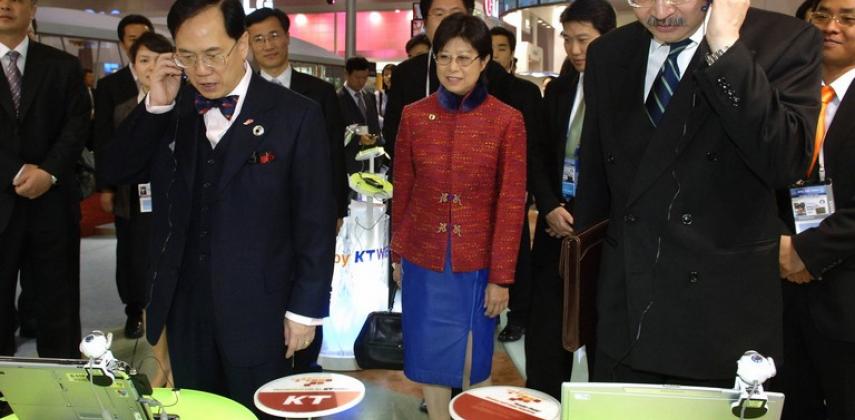The lucky few who manage to get accepted are trained to become multi-disciplined professional administrators. They are put on the fast track to fill up senior positions in the government.
The attraction of a career in the civil service has not been dimmed by the establishment of the political appointment system in 2008 which introduced new layers of senior officials often drawn from outside the ranks.
Recruitment exercises for 20-30 AO vacancies regularly attract 10,000 applicants or more. The candidates who are finally selected are the cream of the crop.
Some of the requirements include a first or second class honours bachelor's degree from a Hong Kong university or equivalent; a pass result in the aptitude test in the Common Recruitment Examination; a good command of spoken and written English and Chinese; and a Hong Kong permanent resident status. Candidates with recognised post-graduate degrees are also eligible.
Those who meet these requirements are asked to report for written examinations and interviews before the final selection is made.
Priscilla To Kit-lai, principal assistant secretary (Civil Service) in the Administrative Service, says the recruitment process seeks to identify candidates with a strong academic background and a broad perspective. Those who make it through the rigorous selection process can look forward to a challenging and rewarding career.
"AOs take up different positions in bureaus and departments, as well as districts and overseas offices at regular intervals. Through regular rotation of jobs, AOs receive wide exposure and acquire expertise in different policy areas. [They also] develop multiskills and accumulate experience in public administration," To explains.
Chief Executive Donald Tsang Yam-kuen is one of the former administrative officers who have risen through the ranks to assume top positions.
Other prominent former AOs include Financial Secretary John Tsang Chun-wah and former chief secretary for administration Anson Chan Fang On-sang.
Of course, not every newly hired AO is going to make it all the way to the top. But To says they expect all AOs to have the potential to rise to the directorate grade. To do so, they need to display leadership as well as a strong commitment to serve the community.
"Generally speaking, AOs in their fourth or fifth year of service are given opportunities to work at the senior administrative officer rank before they are actually considered for promotion. The most able and aspiring officers may fill up leading positions in the government, namely permanent secretaries in bureaus and directors of government departments," she adds.
Ronald Leung is among the new generation of AOs. He joined the Administrative Service in 2010 and says it has been a steep learning curve for him as he has had to develop his knowledge of public affairs and improve his experience in working with people from all walks of life.
Before joining the government, Leung briefly took up a graduate position in the accounting sector but his new career is more in line with his interests and ambitions.
"I have great interest in public affairs and hope to make a difference to my home city and its citizens' well-being," he says. "I am attracted to the intellectually challenging decision-making process for AOs, which requires us to strike a balance between various policy objectives and stakeholders' interests."
Leung is attached to the development bureau as an assistant secretary in the harbour unit, taking part in the planning and implementation of harbourfront projects.
To attract top candidates to the civil service, the government offers competitive remuneration packages. For the 2010-2011 recruitment exercise, the starting salary is around HK$36,950 per month, plus 18 days' annual vacation leave and free medical and dental treatment. All new appointees are subject to a three-year probationary period.


